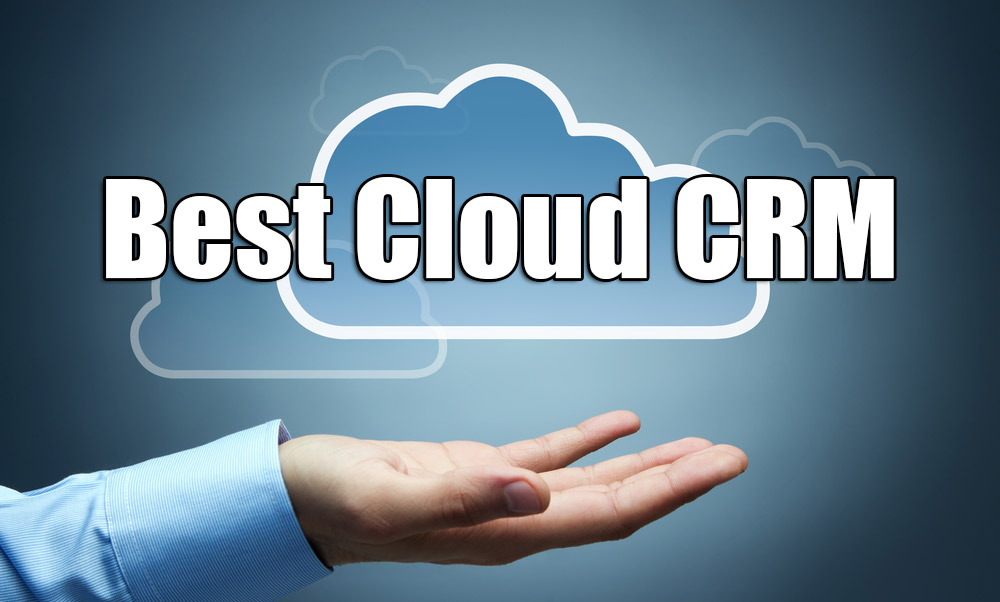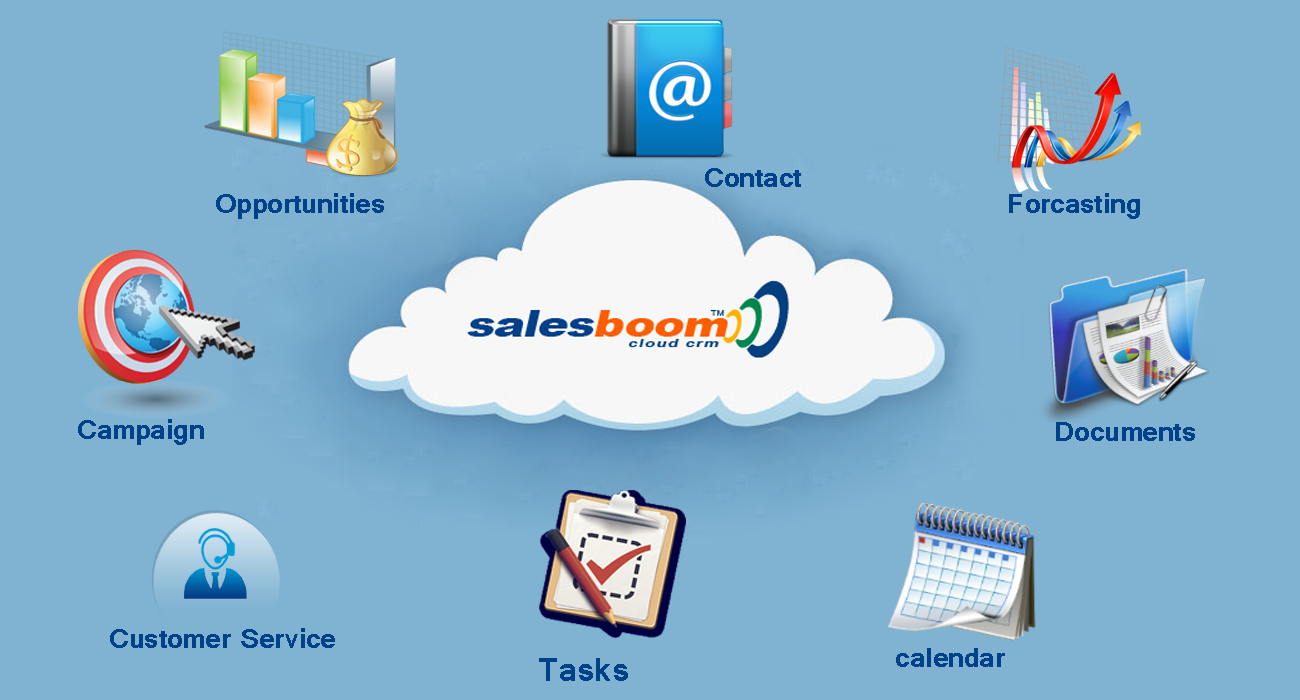Starting off with the best CRM cloud solutions, this topic delves into the importance of managing customer relationships effectively through advanced cloud-based systems.
Exploring the benefits, key features, and implementation of CRM cloud platforms, this discussion aims to provide a comprehensive guide for businesses seeking to optimize their customer management strategies.
Importance of CRM in Business
Customer Relationship Management (CRM) plays a crucial role in managing customer relationships for businesses. By utilizing CRM systems, companies can enhance customer satisfaction, improve customer retention, and boost overall profitability. CRM helps businesses track customer interactions, analyze data, and personalize communication to meet customer needs effectively.
Explain the significance of CRM in managing customer relationships.
CRM systems provide businesses with a centralized database to store customer information, purchase history, and communication preferences. This enables companies to tailor their marketing strategies, provide personalized customer service, and build long-term relationships with their clients.
Discuss how CRM systems help businesses improve customer retention.
By implementing CRM systems, businesses can identify at-risk customers, analyze their behavior patterns, and proactively engage with personalized offers or solutions. This proactive approach helps in retaining customers, reducing churn rates, and increasing customer loyalty.
Share examples of how CRM cloud solutions enhance customer satisfaction.
CRM cloud solutions offer businesses the flexibility to access customer data from anywhere, anytime, using any device with an internet connection. This accessibility enables real-time customer support, personalized marketing campaigns, and seamless communication channels, ultimately leading to improved customer satisfaction.
Benefits of CRM Cloud: Best Crm Cloud
Using CRM cloud solutions offers numerous advantages over traditional CRM systems. The scalability, cost-effectiveness, and flexibility of cloud-based CRM platforms make them an ideal choice for businesses looking to streamline their customer relationship management processes.
Elaborate on the advantages of using CRM cloud over traditional CRM systems.
CRM cloud solutions eliminate the need for expensive hardware, maintenance costs, and IT infrastructure, making them a cost-effective option for businesses of all sizes. Cloud-based CRM also offers automatic updates, data security, and easy integration with other business tools, enhancing overall efficiency.
Detail how CRM cloud solutions offer scalability for growing businesses., Best crm cloud
Cloud-based CRM systems provide businesses with the flexibility to scale their operations based on changing requirements, such as increasing or decreasing user licenses, storage capacity, or features. This scalability ensures that businesses can adapt to growth without facing limitations.
Discuss the cost-effectiveness of CRM cloud in comparison to on-premise solutions.

CRM cloud solutions typically involve a subscription-based pricing model, allowing businesses to pay for the services they use without investing in expensive infrastructure or software licenses. This pay-as-you-go model reduces upfront costs and provides predictable expenses for budget planning.
Features to Look for in the Best CRM Cloud
When selecting a CRM cloud platform, businesses should consider key features such as contact management, lead tracking, and sales forecasting to enhance their customer relationship management capabilities. Customization options and integration capabilities with other business tools play a vital role in optimizing CRM processes and maximizing productivity.
Identify key features such as contact management, lead tracking, and sales forecasting.
Effective CRM cloud platforms should offer robust contact management features to maintain detailed customer profiles, track interactions, and record communication history. Lead tracking capabilities help businesses manage sales pipelines, prioritize leads, and optimize conversion rates, while sales forecasting tools provide insights into revenue projections and performance metrics.
Discuss the importance of customization options in CRM cloud platforms.

Customization options allow businesses to tailor their CRM systems to align with their specific needs, industry requirements, and workflow processes. Custom fields, workflows, and reporting tools enable businesses to create personalized experiences for their customers and streamline internal operations for better efficiency.
Explain the integration capabilities with other business tools like email marketing software or ERP systems.
CRM cloud platforms should offer seamless integration with third-party applications, such as email marketing software, accounting systems, or ERP platforms, to centralize data, automate processes, and enhance cross-functional collaboration. Integrating CRM with other business tools improves data accuracy, eliminates manual data entry, and enhances overall productivity.
Implementation and Training

Implementing a CRM cloud solution within a company involves several steps, including data migration, system configuration, user training, and ongoing support. Training employees to effectively use the CRM system is crucial for maximizing its benefits and ensuring a smooth transition from legacy systems to cloud-based platforms.
Discuss the steps involved in implementing a CRM cloud solution within a company.
The implementation process typically begins with assessing business requirements, selecting the right CRM cloud vendor, configuring the system to match organizational needs, migrating data from existing systems, and testing the platform for functionality and performance. Ongoing support and maintenance are essential for continuous improvement and user adoption.
Discuss the importance of training employees to effectively use the CRM system.
Training programs should be designed to educate employees on CRM functionalities, best practices, and data management techniques to ensure they can utilize the system efficiently. Hands-on training, user guides, and continuous learning opportunities help employees adapt to the new system and leverage its features to enhance customer relationships.
Share best practices for ensuring a smooth transition to a CRM cloud platform.
To facilitate a successful transition to a CRM cloud platform, businesses should communicate the benefits of the new system to employees, involve key stakeholders in the decision-making process, provide ongoing support and training, and encourage feedback and user engagement. By prioritizing user adoption and change management, businesses can maximize the ROI of their CRM investment.
Outcome Summary
Concluding with a summary of the key points discussed, it is evident that adopting the best CRM cloud solution can significantly impact customer retention, satisfaction, and overall business growth.
FAQ
What sets CRM cloud solutions apart from traditional CRM systems?
CRM cloud solutions offer greater scalability, cost-effectiveness, and flexibility compared to traditional on-premise CRM systems.
How important is employee training when implementing a CRM cloud solution?
Employee training is crucial to ensure effective utilization of the CRM system and maximize its benefits for the business.
